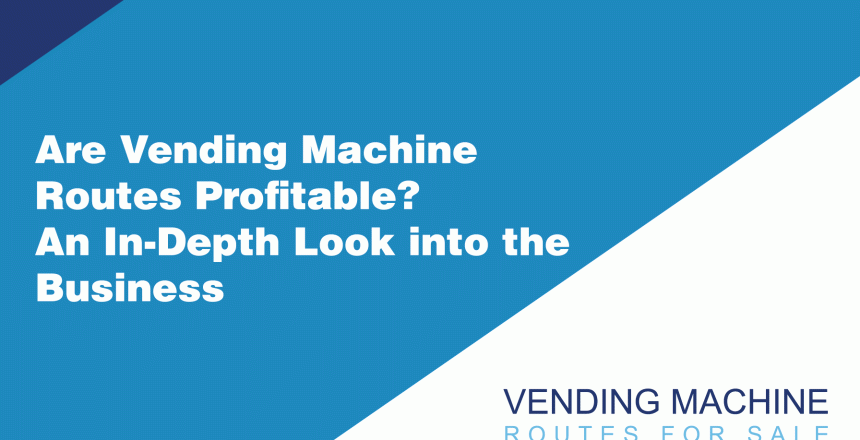In the world of passive income and entrepreneurial ventures, vending machine routes have emerged as a popular choice. But the burning question for many potential investors and entrepreneurs remains: Are vending machine routes truly profitable? This article delves into the various aspects of the vending machine business to uncover the reality behind its profitability.
Understanding the Vending Machine Business Model
To assess the profitability of vending machine routes, it’s essential to understand the business model. Essentially, vending machine routes consist of multiple vending machines placed
in various locations. The owner is responsible for stocking, maintaining, and collecting income from these machines. Profitability depends on factors like location, the type of products sold, and the efficiency of operations.
Key Factors Influencing Profitability
- Location: The most crucial factor. Machines placed in high-traffic areas with the right demographic can see significantly higher sales.
- Type of Products: Snacks, beverages, or niche products? The choice affects sales volume and margins.
- Operational Efficiency: Includes maintenance costs, restocking logistics, and handling cash or digital payments.
- Initial Investment and Overhead Costs: Initial purchase of machines and ongoing expenses like restocking, transportation, and maintenance.
Analyzing the Revenue Potential
The revenue from a vending machine route can vary widely. High-traffic locations like malls, office buildings, or schools can generate substantial daily sales, while machines in quieter spots may yield less. The type of machine also plays a role; for instance, vending machines with a higher variety of products might attract more customers.
Understanding the Margins
Vending machine routes operate on a margin basis. The difference between the wholesale price of the products and the selling price determines the gross profit. However, operational costs
must be deducted to get the net profit. Efficient route planning and bulk purchasing of products can enhance these margins.
Assessing the Risks and Challenges
Like any business, vending machine routes come with their risks and challenges:
- Vandalism and Theft: A potential risk, especially in less secure areas.
- Machine Maintenance: Regular maintenance is crucial to avoid downtime, which can impact profitability.
- Market Trends and Consumer Preferences: Staying updated with trends and adjusting the product mix is vital for sustained profitability.
Real-Life Success Stories
Many entrepreneurs have found success with vending machine routes, citing advantages like flexible working hours and relatively passive income once the initial setup is completed.
Testimonials often highlight the importance of strategic planning and location selection in achieving profitability.
Conclusion
So, are vending machine routes profitable? The answer is yes, but with caveats. Success in this business requires careful planning, strategic location selection, efficient operations, and adaptability to market trends. While it offers a potentially lucrative venture, it’s not a guaranteed success and requires dedication and smart management. For those willing to put in the effort, vending machine routes can indeed be a profitable and rewarding business.
